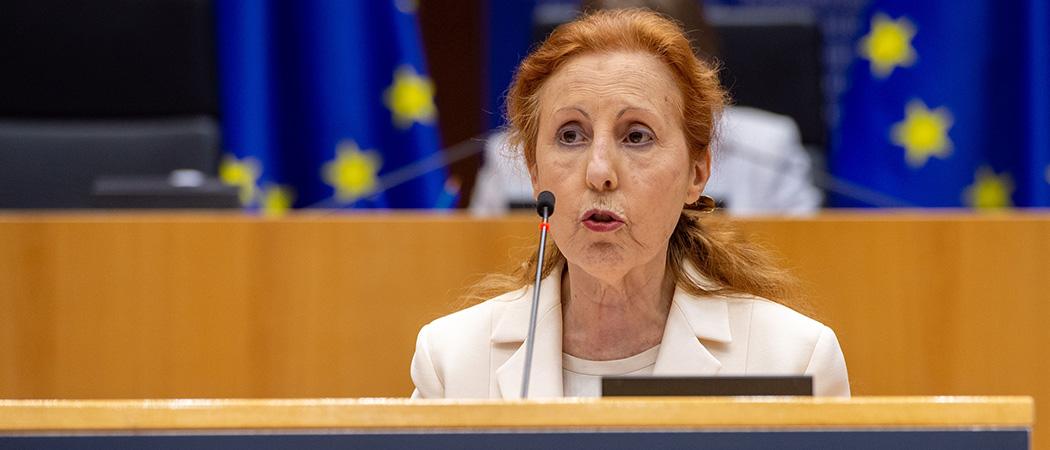With association now linked to the EU’s wider relationship with Switzerland and the UK, the parliament wants a formal position in talks. Research programmes have increasingly become ‘strategic instruments’ tied to the ‘general political agenda’

Maria da Graça Carvalho, Member of the European Parliament. Photo: European Union
MEPs are calling for formal involvement in Horizon Europe association negotiations, saying these deals are now too important to be left to the Commission alone.
In the view of MEPs, association to the research programme is no longer just a technical matter but is now being used as a wider negotiating card in EU relationships with countries including the UK and Switzerland.
And following Brexit, the question of whether or not the UK associates, and the terms on which this happens, has big implications for Horizon Europe’s entire budget and structure.
“I regret that the European Parliament, as co-legislator, has so little or no role in the development of these association agreements,” Maria da Graça Carvalho told research commissioner Mariya Gabriel at a meeting of the industry and research committee on 27 September. “How do you see a way that we are more involved in the future?” she asked.
Parliament has long wanted more of a role in association negotiations, Carvalho told Science|Business. In Horizon Europe, the UK is for the first time to be a potential associated country, and the terms on which it joins have big implications for the structure of the rest of the programme, Carvalho said. “Being associated to Horizon has influence in many parts of Horizon, so we really need to have a way where we are formally part of these talks.”
“It’s becoming extremely important now with the UK,” Carvalho added. “We need to be fully involved in these negotiations.”
MEPs are “very much in contact” with commissioner Gabriel and deputy director-general for research and innovation Signe Ratso, who is handling association talks. But for now, MEPs have been brushed off, Carvalho said. “They said that they will keep us involved, that they will inform us, but it’s not the same thing,” she said. “We should have a more formal way.”
In recent months, the Commission has explicitly tied the association of both Switzerland and the UK to their broader relationship with the EU.
Talks with Switzerland have been shelved after the collapse of wider negotiations over a new overarching framework of relations between Brussels and Bern. The EU is also demanding what it says are unpaid cohesion payments from Switzerland.
When negotiating association, “we will take into account the development and the prospect of the EU-Swiss relationship as a whole,” a Commission spokesman said in a statement last month.
This policy of entanglement between Horizon Europe and wider EU objectives now appears to be applied to the UK too. On 27 September commissioner Gabriel said that the dispute over the implementation of the Northern Ireland protocol could influence the deal on Horizon Europe.
“More and more, and you see that is in the Swiss case, association agreements become part of the political portfolio of the Commission driving other issues,” said Christian Ehler MEP, who as rapporteur on the file was closely involved in shaping Horizon Europe.
Speaking before Gabriel’s statement yesterday about the UK, Ehler said there is a “growing understanding in the parliament” that MEPs wanted more of a say if association to EU programmes becomes “hostage” to other objectives.
Research programmes had increasingly become “strategic instruments” tied to the “general political agenda” and “economic questions”, said Ehler. “If we see that the Commission is using its instruments more and more as a political instrument, obviously, then there is a certain appetite of the parliament to say, that is now out of context and out of what has been defined in the treaties.”
A Commission spokesperson told Science|Business that the Commission is acting “in a spirit of full transparency” over the association negotiations. “Parliament is regularly informed about requests for association, exploratory talks conducted by the Commission and all association negotiations,” the spokesperson said





 A unique international forum for public research organisations and companies to connect their external engagement with strategic interests around their R&D system.
A unique international forum for public research organisations and companies to connect their external engagement with strategic interests around their R&D system.